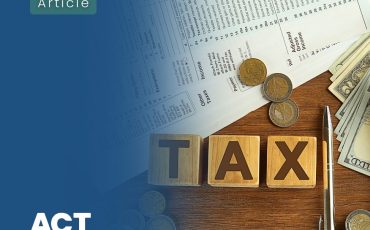Lodging your tax return can feel overwhelming, especially when the Australian Taxation Office (ATO) offers pre-filled online services through a myGov account. Should you lodge your own tax return or engage a registered tax agent? This article examines both options, helping you understand how to get the best tax refund or meet your tax obligations, whether you’re an individual, sole trader or small business owner.
The Challenge of Lodging Your Tax Return
Completing an individual tax return or business return involves gathering income statements, tracking expenses and applying eligible deductions. For most people, the ATO website and myGov account pre-fill much of the information using your tax file number, banking details and government payments records.
Concerned about making mistakes on your tax return?
Schedule a complimentary consultation with us today to ensure your return is accurate and ATO-compliant.
DIY Tax Return: What’s Involved
Lodging your own tax return online is free via the ATO website. Once you register and link your myGov account, you can lodge online using the myTax service. The system will pre-fill income from employers, health funds rebates and any interest you earned. You then review any deductions—such as work-related expenses or charitable donations—and submit.
Benefits of DIY
Completing your own tax return can save you the cost of an accountant or tax agent. You maintain control over every detail, from declaring your income to claiming deductions for tools, business expenses or services tax you paid. The refund generally arrives within two weeks if you lodge online before the end of the financial year.
Drawbacks of DIY
However, DIY tax returns carry risks. Mistakes—like overlooking deductible interest on loans or claiming ineligible expenses—can trigger ATO reviews. You also miss out on concessional lodgement dates that a registered tax agent can offer, giving you extra months to lodge after the 31 October deadline.
Engaging a Registered Tax Agent
A registered tax agent holds a Tax Practitioners Board licence and an Australian Business Number. They handle everything from preparing your return to advising on income tax strategies and business claims.
Advantages of a Tax Agent
A tax agent knows how to maximise your refund by identifying eligible deductions you might miss. Whether you need to lodge a tax return for rental income, capital gains or sole trader earnings, they ensure accuracy and compliance. They also manage any ATO queries and can amend a return if needed. Their fees are claimable on your next tax return, and they secure extended deadlines—sometimes up to ten months after 30 June.
Considerations and Costs
Fees for a standard individual tax return generally range from $100 to $400, depending on complexity. For businesses or sole traders, costs may be higher. While you pay for these services, many find the investment worthwhile when the added deductions or peace of mind outweigh the fee.
We’re more than bookkeeping experts
As part of ACT Tax Group, we offer complete accounting and business advisory services tailored to your needs.
Conclusion
Deciding whether to lodge your own tax return or use a registered tax agent depends on your circumstances. If your income tax situation is straightforward and you have time to learn the ATO website and myTax service, DIY may suit you. But for complex financial affairs, multiple income streams or when you need deadline flexibility and expert support, a tax agent can deliver greater value. Contact ACT Tax Group today to discuss your needs and ensure your next tax return is accurate, on time and maximises your refund. How will you lodge your tax return this year?

